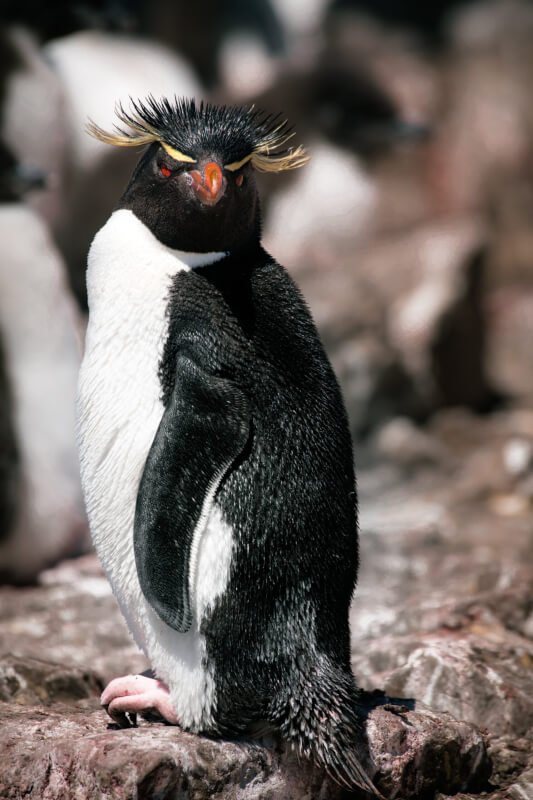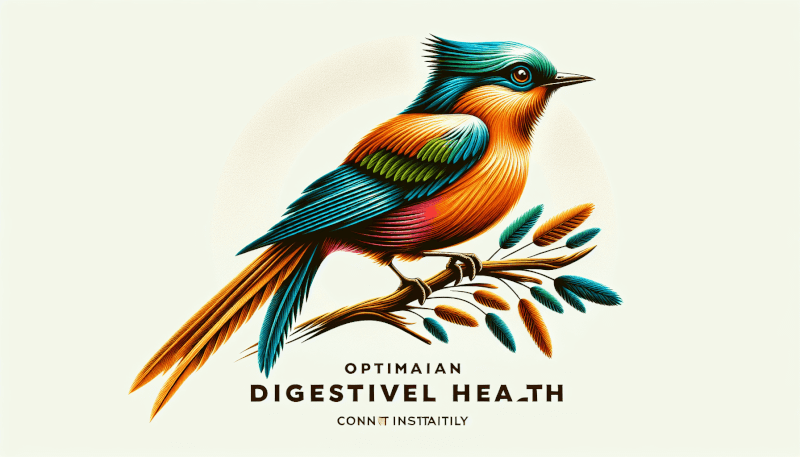In this article, we will explore the key factors that play a significant role in promoting the digestive health of avian species. From their unique dietary needs to the importance of gut bacteria, we will uncover how a well-maintained digestive system contributes to the overall well-being and vitality of our feathered friends. By understanding these crucial aspects, you can ensure that your avian companions are leading a healthy and happy life. So, let’s dive straight into the fascinating world of avian digestive health!

1. Diet
A well-balanced and nutritious diet is essential for maintaining a healthy digestive system in birds. By providing a variety of foods, you ensure that your feathered friend receives a wide range of essential nutrients. This variety can include seeds, fruits, vegetables, and even small amounts of protein such as cooked egg or mealworms. The different textures and flavors of these foods not only keep your bird’s taste buds happy but also provide vital vitamins and minerals.
To further enhance your bird’s diet, it is important to choose high-quality feed. Look for options that are specifically formulated for your bird’s species and age. These feeds often contain a precise balance of essential nutrients, including proteins, carbohydrates, fats, and vitamins. Additionally, selecting feed that is free from artificial additives and preservatives can help promote better digestive health.
2. Hydration
Keeping your bird properly hydrated is crucial for maintaining optimal digestive health. Fresh, clean water should be available to your bird at all times. Birds have a higher water requirement compared to mammals, so it is essential to monitor their water intake regularly. Make sure to change the water daily and clean the water container to prevent the growth of harmful bacteria.
In some cases, providing electrolyte supplements can be beneficial, especially during hot weather or times of stress. Electrolytes help to restore the balance of essential minerals in your bird’s body and support proper hydration. Consult with your avian veterinarian to determine if your bird would benefit from electrolyte supplementation.
3. Gut Flora
The gut flora, consisting of beneficial bacteria, plays a vital role in the digestion of food in birds. Probiotics are live microorganisms that can be added to your bird’s diet to promote a healthy balance of gut flora. These friendly bacteria aid in breaking down food and absorbing nutrients, keeping your bird’s digestive system functioning optimally. Look for avian-specific probiotic supplements or consider offering natural sources such as probiotic-rich foods like live-culture yogurt or kefir.
Prebiotics, on the other hand, are non-digestible substances that provide nourishment to the beneficial bacteria in your bird’s gut. They act as a food source for these bacteria, helping them thrive and support a healthy digestive system. Fiber-rich foods, such as vegetables and fruits, are good sources of prebiotics and can be included in your bird’s diet to promote gut health.
It is important to avoid the unnecessary use of antibiotics, as they can disrupt the delicate balance of gut flora. Antibiotics should only be used under the guidance of a veterinarian and when absolutely necessary to treat specific infections.
4. Digestive Enzymes
Just like humans, birds rely on digestive enzymes to break down food and extract nutrients. Natural enzyme sources, such as fresh fruits and vegetables, are excellent additions to your bird’s diet. Fruits like papaya and pineapples contain natural enzymes, such as papain and bromelain, respectively, which can aid in digestion.
In some cases, especially for birds with digestive issues or those on specialized diets, enzyme supplements may be recommended. These supplements contain specific enzymes that help your bird digest specific nutrients more efficiently. Consult with your avian veterinarian to determine if enzyme supplements are suitable for your bird.

5. Grit and Fiber
Grit serves as an important aid in the digestion of food for many bird species. It helps grind down the food in the bird’s gizzard, a muscular organ that aids in mechanical digestion. Birds that consume seeds or other hard foods should be provided with a suitable grit source, such as crushed oyster shells or commercial bird grit. Without grit, these birds may struggle to properly break down their food, leading to digestive issues.
Fiber is another critical component of a healthy avian diet. It promotes gut motility and prevents constipation. Birds can obtain fiber from various sources, including fresh fruits, vegetables, and certain types of seeds. The inclusion of these fiber-rich foods in your bird’s diet can help ensure smooth digestion and prevent gastrointestinal problems.
6. Avoiding Contaminants
To maintain optimal digestive health, it is important to minimize exposure to contaminants in your bird’s diet. Choose pesticide-free foods whenever possible, as pesticides can be harmful to your bird’s sensitive digestive system. Organic fruits and vegetables are excellent options as they are grown without the use of synthetic pesticides.
Similarly, providing clean water sources is crucial. Ensure that the water your bird consumes is free from chemicals and toxins. Regularly clean and sanitize the water container to prevent the growth of harmful bacteria.

7. Avoiding Stress
Stress can have a negative impact on your bird’s digestive health. Providing a calm and comfortable environment for your feathered friend is crucial in minimizing stress. Avoid loud noises, sudden changes, or exposure to predators that can trigger anxiety in your bird.
Additionally, be mindful of minimizing changes in your bird’s diet or routine. Birds are creatures of habit and sudden alterations can disrupt their digestive system. If you need to introduce new foods or make changes to their environment, do so gradually, allowing your bird time to adjust.
8. Physical Activity
Encouraging natural foraging behaviors can greatly benefit your bird’s digestive health. This not only provides mental stimulation but also helps mimic the physical activity associated with seeking and obtaining food in the wild. Hide treats or food in various locations within their enclosure or provide toys and puzzles that allow them to “hunt” for their food.
Regular exercise is equally important in promoting a healthy digestive system. Encouraging your bird to move around and engage in physical activity helps maintain a strong digestive tract and prevents problems related to inactivity.

9. Optimal Temperature
Maintaining a comfortable environment for your bird is essential for optimal digestion. Birds are highly sensitive to extreme temperatures, and both hot and cold conditions can interfere with their digestive processes. Ensure that your bird’s living area is well-regulated and within the appropriate temperature range for their species.
10. Regular Veterinary Check-ups
Regular check-ups with an avian veterinarian are crucial for monitoring your bird’s digestive health. During these visits, your veterinarian can conduct thorough examinations, assess your bird’s overall well-being, and check for any signs of digestive issues. They may also recommend specific dietary modifications or additional digestive health support based on your bird’s individual needs.
By prioritizing these key factors in promoting avian digestive health, you can ensure that your feathered friend enjoys a happy and comfortable life. Remember to consult with your avian veterinarian for tailored advice and guidance based on your bird’s unique requirements. With proper care and attention, you can help your bird maintain a healthy and thriving digestive system.



